Hide IP
An Internet Protocol (IP) address is the most common piece of info to identify a device online. And there may be a lot of reasons why you'd wanna hide it, including protection of your identity and sensitive data, avoiding a digital footprint, bypassing content filters, bans, and all that jazz. Well, don't sweat, buddy – you can cover your IP in many ways!
14-day money-back option
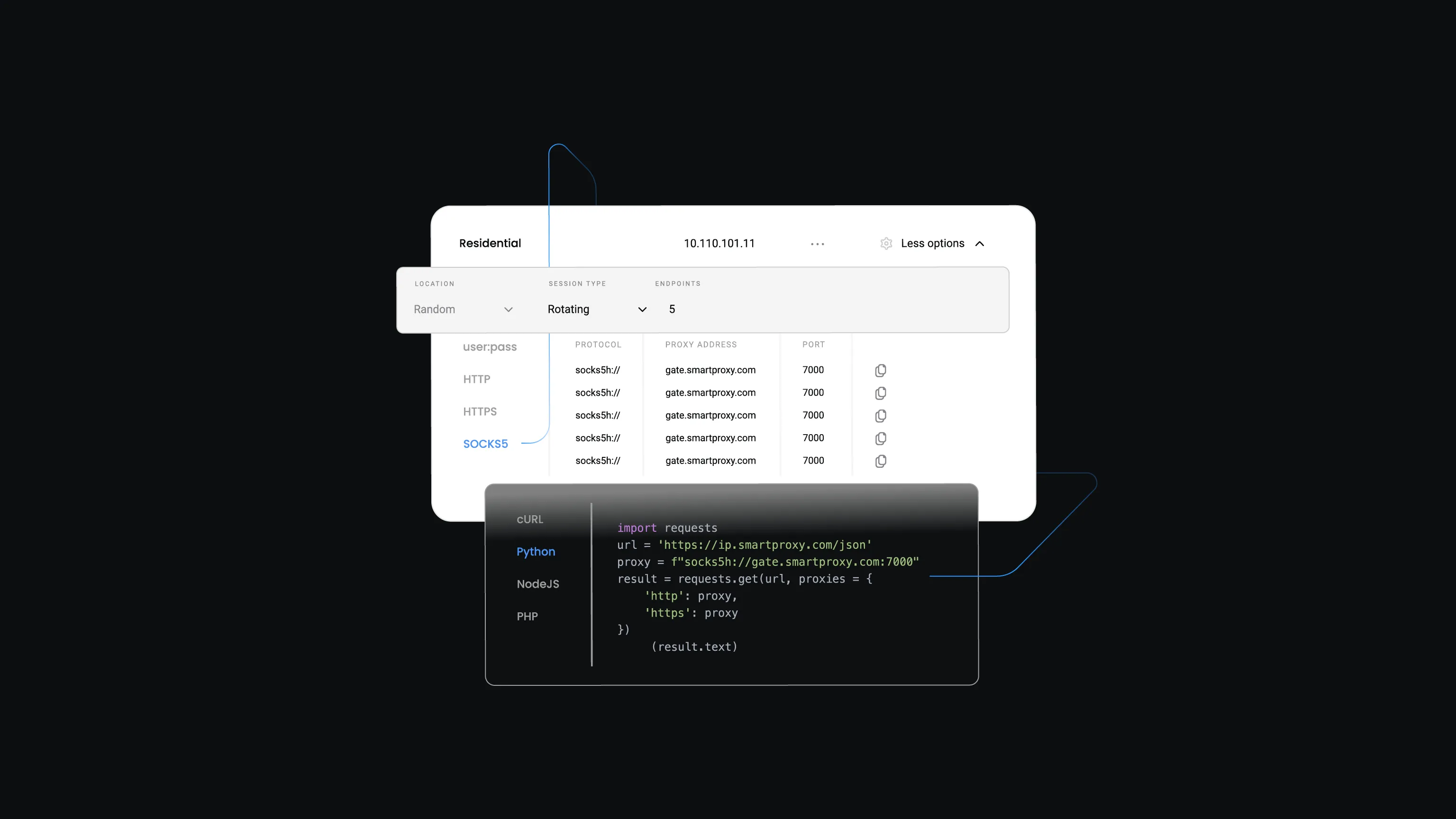
SOCKS Proxy Explained: Definition, Benefits & Use Cases
A proxy protocol is a set of rules that govern how internet traffic is intercepted, routed, and processed between clients and servers. When it comes to widely used proxy protocols, HTTP often steals the spotlight, leaving SOCKS proxies overlooked despite their flexibility. To help you decide if SOCKS proxies are right for your needs, this blog post will break down what they are, explain how they differ from other proxy types, explore their benefits and drawbacks, and look at the most common use cases.

Dominykas Niaura
Mar 14, 2025
10 min read
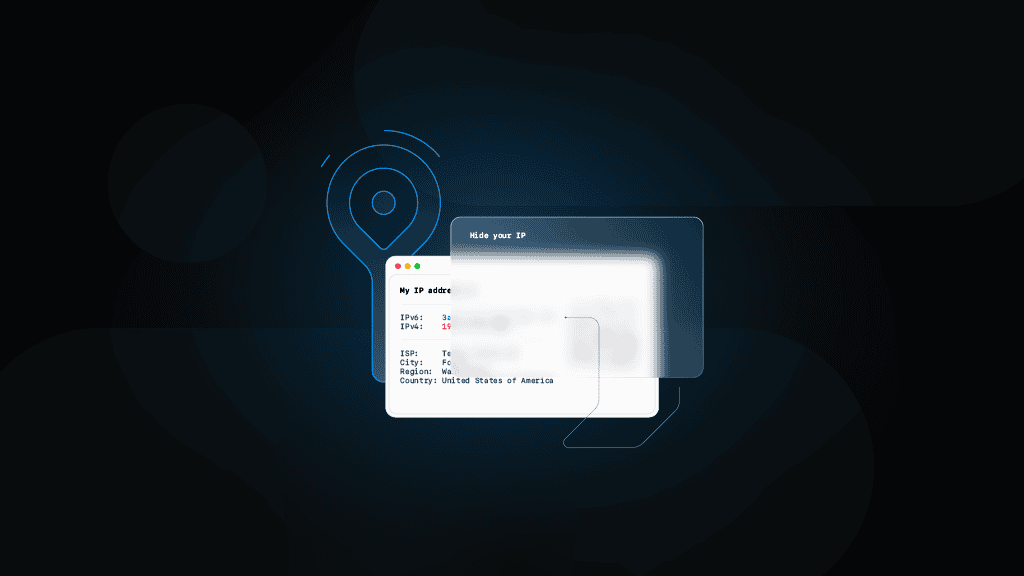
How to Hide Your IP Address: Top 5 Ways
Because the internet never forgets and every click leaves a digital footprint, hiding your IP address is sometimes essential. Staying anonymous enhances data security and grants access to geo-restricted content, though it comes with a few trade-offs. This guide covers 5 effective ways to hide your IP and protect your online privacy.

Vilius Sakutis
Mar 07, 2025
7 min read
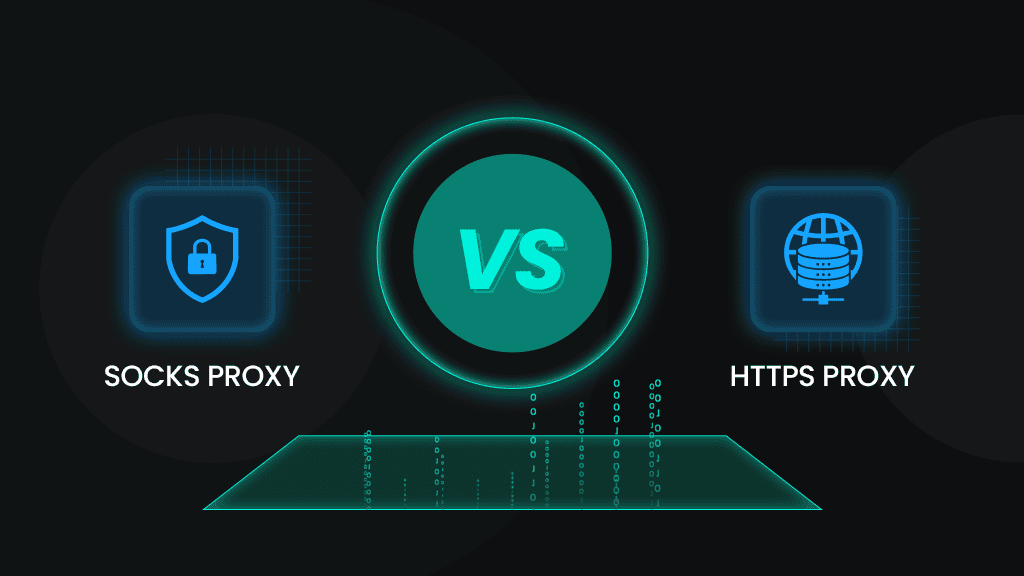
Difference Between SOCKS5 Proxy vs. HTTP Proxy
Choosing the right proxy type is essential for optimizing performance, security, and efficiency in web data collection. SOCKS and HTTP proxies serve different technical needs, from handling large-scale web scraping projects to managing automation and secure connections. In this article, we’ll compare SOCKS (SOCKS5 in particular) and HTTP proxies, explore their advantages, and help you determine which option best supports your data-driven tasks. By the end, you’ll have the clarity to make an informed decision and scale your operations with confidence.
Mar 06, 2025
7 min read
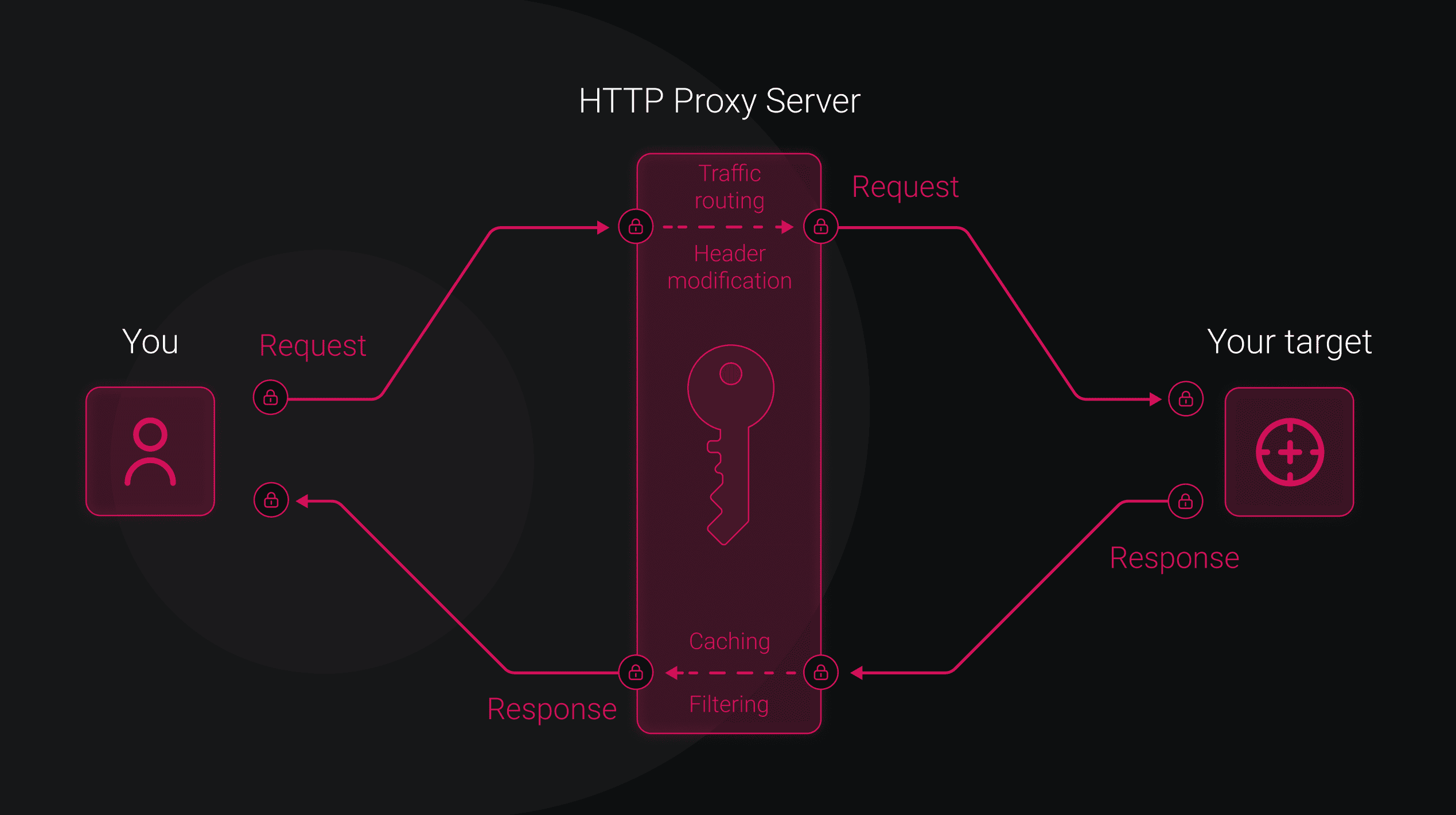
HTTP Proxy: Definition, Use Cases, and Error Solutions
HTTP proxies are one of the most common types of proxies, widely supported across various proxy types, including residential, mobile, datacenter, and static residential proxies. Designed specifically to handle HTTP and HTTPS traffic, they’re a versatile solution for tasks like anonymizing browsing, bypassing geo-restrictions, and optimizing network operations. In this blog post, we’ll explore what HTTP proxies are, their use cases, and practical solutions to common errors.

Dominykas Niaura
Jan 27, 2025
7 min read
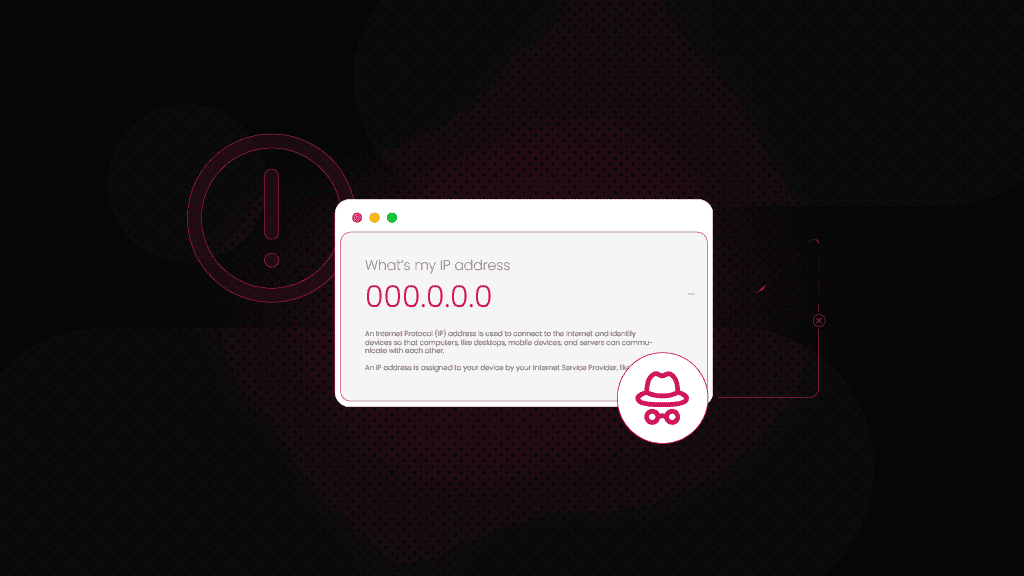
Fake IP Address: What Is It and Why Shouldn't You Use It?
When we scale businesses, do research, or just scroll leisurely, it's always a good idea to be clued up on online security. Whatever your reasons for running your eyes over a web browser are, anonymity and privacy are two pretty important players here. The thing is that any browser, website, system, or network can see our IP address. Some of them might even log your IP address and track it. In this blog post, we’ll go over the dangers of using free software, fake IPs, and the illegal aspects of using IP information.

Martin Ganchev
Dec 31, 2024
6 min read
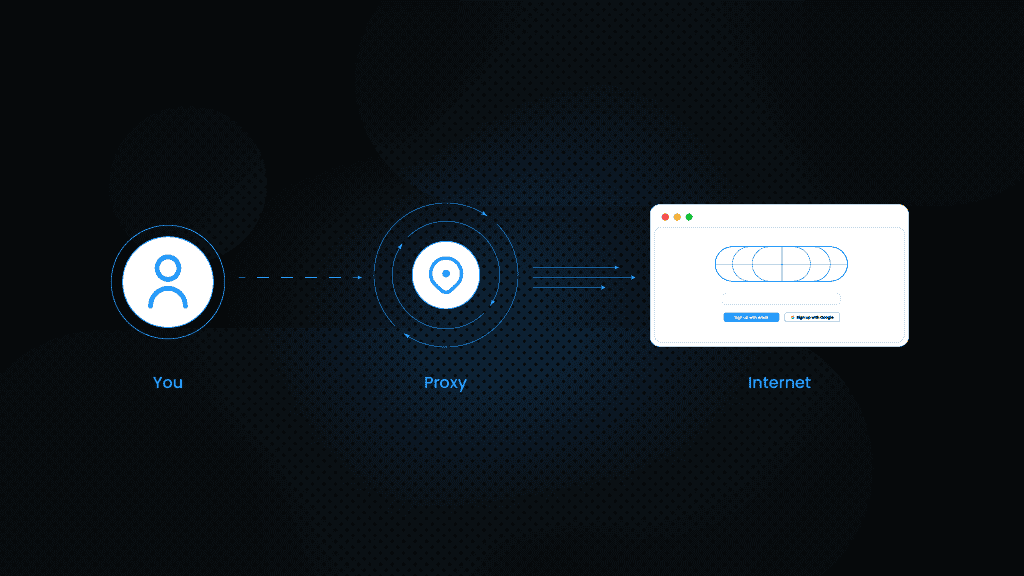
What Are Rotating Proxies and Why Should You Use Them?
A rotating proxy is a server that automatically changes the user’s IP address after each connection or at set intervals. This proxy rotation is handy when you need a different IP address with every request. In this guide, we’ll explore what rotating proxies are, how they work, and their common use cases, including web scraping and multi-accounting.

Dominykas Niaura
Oct 02, 2024
7 min read





